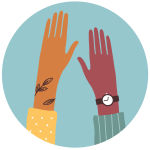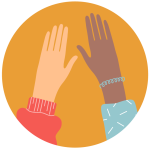Resident Focus Group Guide

We will not be video or audio recording this session. However, we will be taking detailed notes. We ask that during this focus group, you adhere to the same community agreements we use during our Education for CHANGE sessions.
This will be a moderated session. Participation is voluntary. This session will last approximately one hour. We encourage everyone to participate, as we hope to hear about all of your experiences with our simulation. In the interest of time, we may have to redirect conversation or interrupt a story. Likewise, we may need to directly invite some individuals to join the conversation. If asked a direct question, you are allowed to decline.
If at any time the content of this discussion becomes traumatizing or harmful to you, you may leave. You will still be eligible for the [incentive].


Since it has now been a few months since our simulation, we would like to better understand your perspectives on its efficacy and whether you have noticed any culture changes in the residency program or changes in behavior in yourself or others since then. We understand that this, as a single intervention, has limitations to how much change it can make, however we would like to capture any observations you may have had.
Evaluation:

- What do you remember about the session?
- How can we change the scenarios to be more helpful or impactful?
- What other scenarios would be helpful to incorporate?
- Are there any other clinical contexts that you wish we had used?
- Did the inclusion of standardized patients affect the impact and retention of this material?
Impact:
- What impact has the simulation had on your behavior?
- Have you noticed any changes in how you respond to microaggressions since completing the simulation?
- Have you noticed any changes in how your co-residents respond to microaggressions since then?
- Have you noticed any changes related to the culture of interrupting microaggressions in:
- the residency program
- the Department of Pediatrics
- UW Health
- In focus groups, we heard that talking about microaggressions sometimes felt like “checking a box.” Since the implementation of this project, have you observed a change in substantive action vs performative discussion?
- Have you observed a change in how normalized and accepted interrupting microaggressions is in the environments in which you work?
- Have you observed a change in how supported you feel in addressing microaggressions in the clinical environment? (i.e. do you feel like your attendings/the residency program “has your back” when these issues come up and that you can address microaggressions without fear of repercussions?)
- What next steps do you think would help promote more robust culture change in this domain?

